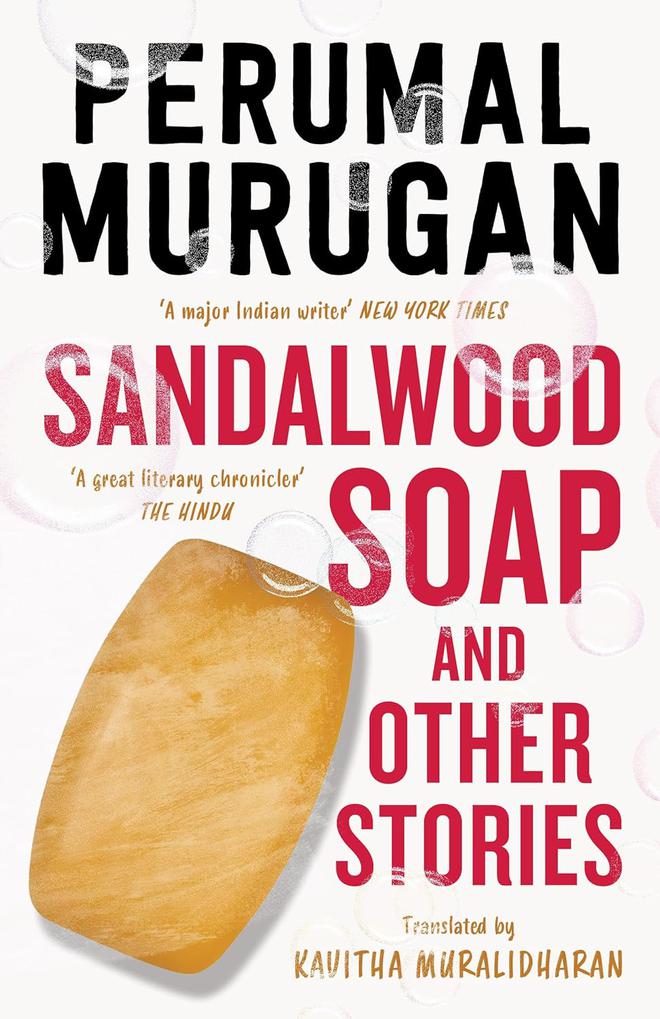It speaks to the prolificity of Perumal Murgan and the burgeoning global appetite for his work that two of his books were launched within a month of each other: Fire Bird (translated by Janani Kannan), followed by Sandalwood Soap and Other Stories (translated by Kavitha Muralidharan). Incidentally, Fire Bird also finds itself in the shortlist of The JCB Prize for Literature, the winner of which will be announced later this month.

There is a perceptible and growing hankering for local, earthy stories that transcend, through sleight of word, the particularities they are set in. Invariably, the hero while still entangled in the process of making a living, unexpectedly rises to be an Everyman, appealingly simple, and yet, universal. Quite like Muthu, in Fire Bird, forced out of comfort by his family, striking out like a pioneer of sorts, marking new territories and lands, displaced and trying to blend in, in a new land. Or, even Velatha, the oracle of sorts, in the short story ‘Magamuni’ that features in Sandalwood Soap. At some point, the readers are cheering the protagonists on, willing them to succeed, vanquishing the evil or pettiness that tries to cow them down.
Undoubtedly, it’s Murugan’s sheer mastery over his craft, though camouflaged by a deceptively simple tone, that makes the reader experience immersive. In fact, it is this that links the two books though they are couched in different genres — Fire Bird is a novel and Sandalwood Soap, a collection of short stories. They convey a Perumal Murugan voice, a quintessential western Tamil Nadu sensibility, both recognisable anywhere, without any introduction, but time and again, content transcends form, and the quotidian rises to be universal.
Universal themes

For instance, the story ‘Loser’ in Sandalwood Soap is about the relationship between a regular office-goer and an extraordinary talking cat, and stunningly Kafkaesque in its conclusion. Muthu’s trials that arise out of deliberate alienation by his family, in Fire Bird, are definitely universal, and in his determination to make it, he could well be Pearl S. Buck’s Wang Lung (The Good Earth) who struggles against the malevolence and schadenfreude of his family and the vicissitudes of nature to survive.
The situation of Muthu’s wife Peruma’s abuse might be quite different from the mother who wears no blouse (‘The Last Cloth’), and thus is an object of shame for her family; and their reactions are different, but it is undeniable that their experience emerges from a patriarchal world order. While Peruma’s truculence gets her the title ‘Aalanda Patchi’ (fire bird), the mother literally fades away in bewilderment. In ‘Hunger’, Murugesh’s wife who lives away from her husband is embarrassed at his insistence in getting relatives at a wedding to book a separate room for the couple. Her shame is different from the one that the mother’s family exhibits, and yet in someways, it arises from the same social constructs and gendered expectations.
Murugan’s elevated sentience is where he derives his earthiness from: the scent of the dry earth; the smells of the marketplace; the fragrance of cooking ‘kali’ and rice; even the nose-wrinkling odours of the public toilets in the titular story in Sandalwood Soap lift off like hot, swirling vapour from the pages of the book, contextualising his world for the reader.
If sentience blesses his work with the regional context, then his sharp consciousness gives it the larger, metaphysical frame. Ingrained in his work are the concepts of caste, discrimination, class, the gender question, and the meaning of life.
Translating a world
Muthu’s Man Friday Kuppan in Fire Bird does not demur when he is asked to grab a coconut shell to drink tea at a shop, and feels that his master is benevolent because he eats the food the lower caste man has cooked, and even shares his toddy. In ‘Grant us Pardon, Saami’(Sandalwood Soap) rests a strange, disturbing tale of a Dalit colony being blamed for the unexplained deaths of cows in the adjoining intermediary caste Hindu village, simply because they are beef eaters. For those who are used to his writing, it defines a Perumal Muruganesque world.
A world that is coaxed into life by the translators, in this case, people who need to be crafty wordsmiths themselves. While reading Sandalwood Soap is like spreading butter on hot toast, Fire Bird does have some decidedly jerky moments. The use of the nga, for instance — in Tamil, a respectful honorific for older people and strangers — seems to disrupt the flow.
But then, to translate a Perumal Murugan book, especially a novel, is no mean task. The unpacking of a world in a cloister, and an intensely regional dialect, requires not merely knowledge of unknown worlds, but also the skill to describe them in another tongue. That makes the published translation an achievement, a neat acrobatic feat.
Fire Bird
Perumal Murugan, trs Janani Kannan
Penguin Random House
₹499
Sandalwood Soap And Other Stories
Perumal Murugan, trs Kavitha Muralidharan
Juggernaut Books
₹599
ramya.kannan@thehindu.co.in







